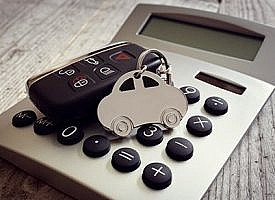Although optimism is high that the pandemic may be gradually drawing to a close in the United States, not everyone will be heading back to the office. Many employers intend to allow certain employees to continue working remotely and, in fact, some employees are demanding the option to do so.
Among the many issues raised by this development is the impact on fringe benefits. Specifically, let’s say an employee has been a participant in a transit pass arrangement but, now that he or she is settled into a home office, no longer wants or needs to participate. Can he or she “cash out” and receive a refund of the unused dollars in the account?
Qualified transportation fringes
Employers who provide employees with transportation benefits can exclude those benefits from their employees’ gross incomes if the benefits are “qualified transportation fringes.”
The Internal Revenue Code provides that the amount of qualified transportation fringes an employer may provide an employee — and that can be excluded from gross income — cannot exceed a maximum monthly dollar amount, adjusted for inflation. The current amount is $270 for transit passes.
The term “transit pass” means any pass, token, farecard, voucher or similar item entitling a person to transportation if such transportation is:
- On mass transit facilities (whether or not publicly owned), or
- Provided by any person in the business of transporting people for compensation or hire in a commuter highway vehicle.
Generally, an employer can provide transportation benefits in cash or as part of a compensation reduction agreement. Employees may elect to reduce their compensation each month by an amount that doesn’t exceed the maximum monthly excludable amount.
When an employee elects to reduce his or her compensation for a month by an amount that exceeds the qualified transportation fringes provided in that month, the employer may apply this excess toward qualified transportation fringes in months following. This applies as long as the employee doesn’t receive qualified transportation fringes exceeding the maximum excludable amount in any month.
A recent inquiry
In Information Letter 2020-0031, the IRS responded to an inquiry regarding whether an employee may receive a cash refund for a balance remaining after the employee ceased participating in a qualified transportation fringe benefit plan because he or she was no longer commuting to work during the COVID-19 pandemic.
The IRS replied that, no, the employee cannot receive a cash refund. Per the applicable regulation, an employee cannot receive a cash refund for a balance remaining on a transit pass after the employee ceases to be a participant in the employer’s qualified transportation fringe benefit plan.
Any questions?
It should be noted that an employee can still use an existing transit pass for trips on mass transit — even if the trips aren’t for commuting purposes — without negative tax consequences. Contact us with any questions you might have about transit arrangements or any other fringe benefit your organization offers or is considering.
© 2021




